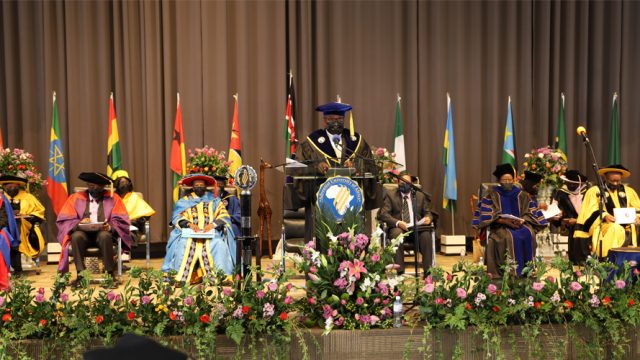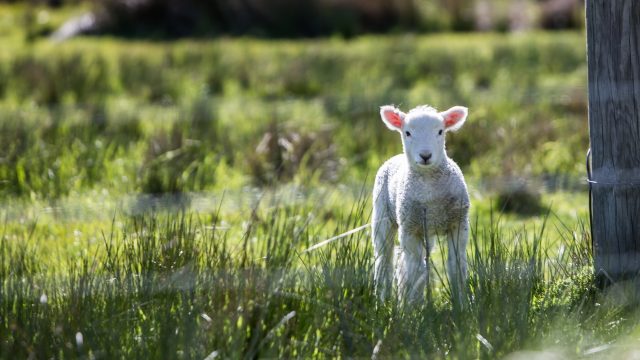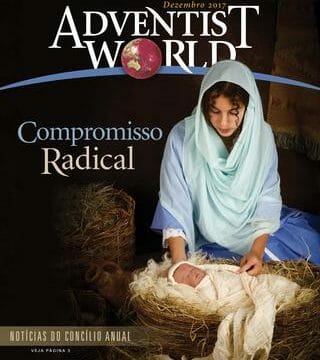The sun was just going down as Dennis* drove an old flatbed truck filled with firewood up the driveway to his last delivery […]

The sun was just going down as Dennis* drove an old flatbed truck filled with firewood up the driveway to his last delivery for the day.
At the sound of the truck homeowner Oscar strode into the yard and addressed Dennis, already unloading his truck: “I told you to deliver the wood before sundown,” he said emphatically.
Dennis looked around. “Yeah, well, I didn’t quite make it. I had trouble with my truck. Fortunately, it’s still light enough to unload my truck before dark.”
Oscar, a relatively new Adventist, walked into his house. He returned carrying a Bible. “Stop unloading,” he said. “This is my Sabbath, and we don’t work on the Sabbath.”
“Well, it’s not my Sabbath,” Dennis replied.
Oscar was ready. Opening his Bible to Exodus 20, he read: “Six days you shall labor and do all your work, but the seventh day is the Sabbath of the Lord your God. In it you shall do no work; you, nor your son, nor your daughter, nor your male servant, nor your female servant, nor your cattle, nor your stranger who is within your gates” (verses 9, 10).
“You’re the ‘stranger within my gates,’ ” said Oscar. “I don’t want you working on my property on the Sabbath.”
Dennis protested that his truck, still loaded with wood, might not make it home. He had to get rid of this load because he had other deliveries to make the next day.
Oscar stood his ground. Not only did Dennis leave without unloading that firewood, he later returned to learn more.
Oscar was right about the Sabbath beginning at sundown, but he might have been more considerate. After all, Jesus said about the Sabbath, “Which of you, having a donkey or an ox that has fallen into a pit, will not immediately pull him out on the Sabbath day?” (Luke 14:5). Not all “work” is prohibited on the Sabbath.
A few months after this episode, I had the privilege of baptizing Dennis into the Seventh-day Adventist Church, all because of a believer who guarded the edges of the Sabbath. But Dennis went on to learn that the Sabbath isn’t just about a day; it’s about having a relationship with God, and having a day—24 hours—to focus exclusively on that relationship.
Time Together
Anyone who’s dated knows how having a romantic interest influences everything you do. You may have a date on Wednesday, but you don’t wait until Wednesday to decide where you’ll go, what you’ll wear, and what you’ll do. You’re thinking about all these things for a portion of each and every day until Wednesday.
So it is with the Sabbath. To receive the maximum benefit of keeping the Sabbath, we don’t wait until sundown Friday evening to plan how we’re going to spend the Sabbath, and with whom. Sabbathkeeping is not like flipping a switch: now it’s Sabbath, now it isn’t. Sabbathkeeping is a state of mind that informs our choices throughout the week.
From the beginning of time—Creation week—each new day began at sunset: “So the evening and the morning were the first day” (Gen. 1:5). When God finished His work, He blessed the seventh day and made holy the time between sundown on the sixth day of the week and sundown on the seventh day of the week. That’s why we worship from sundown Friday night to sundown Saturday night; it’s the day God blessed and set aside for that particular purpose.
But we don’t have to wait until sundown Friday evening to begin our Sabbath experience. We can use the days and hours leading up to the Sabbath to prepare for a relaxed, nonstressful 24 hours with our Creator.
When the sun goes down Saturday night, we don’t have to switch gears and move directly into secular activities. It may no longer technically be the Sabbath, but we can still linger in the atmosphere of our Sabbath experience.
Rest, Rest, Rest
In His wisdom God knew that humanity would need one day out of the week to rest and recharge. Indeed, our seven-day week is the universally observed legacy of that reality.
And although the seventh day of Creation week was God’s seventh day on this planet, it was Adam and Eve’s first day. God commanded them to rest before they had done any work, suggesting that while work is important, rest is more important.
We now live in a culture obsessed with work, status, achievement. How many of us really know how to rest? Even on Sabbath our digital devices—if we allow them—conspire to interrupt the communion God wants us to have with Him and with our fellow creatures.
God’s commandment to observe the Sabbath is intriguingly vague: “Remember the Sabbath day, to keep it holy. . . . In it you shall do no work” (Ex. 20:8-10). But it doesn’t say what we should do.
Jesus spent His Sabbaths worshipping in the synagogue. He also healed people. We can easily imagine Him hiking on a mountainside or strolling a seaside, surrounded not only by people who wanted to hear what He had to say, but also by those who just enjoyed being in His presence. It’s hard to imagine anyone saying, or even thinking, I wish the Sabbath were over so I could get back to work.
Jesus said, “The Sabbath was made for man, not man for the Sabbath” (Mark 2:27, NIV). The Sabbath was never meant to be an exercise in legalism; it was meant to be a delight (Isa. 58:13). That’s why it would be tragic to make the Sabbath a burden rather than a blessing.
When the Sabbath is understood properly, we can appreciate it and revel in our relationship with Jesus long before the sun goes down on Friday evening, and long after it goes down on Saturday night.
*Although the events in this article are true, the names are fictional.
Stephen Chavez is an assistant editor of Adventist World.








